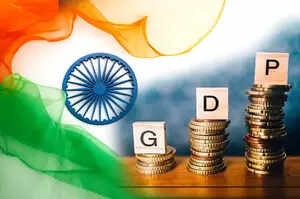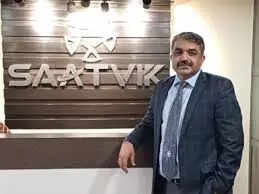[ad_1]

The Reserve Bank of India’s (RBI) recent revision of its GDP growth forecast for FY25 to 6.6%, down from 7.2%, has sparked concerns among India Inc’s CFOs though they remain optimistic about the growth trajectory. While they agree that India will continue to be one of the fastest-growing economies globally, concerns around inflationary pressures, particularly in the manufacturing sector, and their potential impact on demand and margins persist.
Finance executives believe the RBI’s decision to reduce the Cash Reserve Ratio (CRR) by 50 basis points, aimed at boosting liquidity, is a positive step for businesses. It is expected to provide easier access to capital, facilitating capital expenditure plans. However, rising input costs are likely to affect profit margins in the short term, with the manufacturing sector facing particular challenges.
CFOs from industries such as infrastructure and renewable energy remain confident about sustained demand. However, they stressed the importance of operational efficiencies, cost controls, and strategic pricing to mitigate inflation’s impact. While urban markets are expected to continue growing, rural demand remains uncertain, influenced by agricultural performance and government support.
The RBI’s recent monetary policy update saw the central bank downgrading its real GDP growth forecast for FY25 to 6.6%, from the previous 7.2%. The inflation forecast was also revised upwards to 4.8% from 4.5%. The Monetary Policy Committee also reduced the CRR to 4% and kept the repo rate unchanged at 6.5%.
ETCFO gathered reactions from several CFOs about the potential impact of these economic adjustments on India Inc. Here’s what they had to say:Harish Kumar Agarwal, CFO of Kamdhenu Group:
“The revised growth projection of 6.6% remains optimistic, and India will continue to be the fastest-growing economy globally for FY25. Demand will remain strong, especially following the RBI’s decision to reduce the CRR by 50 basis points to 4%. This will improve liquidity and ensure banks have more funds available for businesses.”

“Inflation is a concern, particularly in the manufacturing sector. However, the CRR reduction signals that inflation may ease sooner rather than later,” Agarwal said.

Bhagat Singh, Group CFO, Ceigall India:
“The 6.6% GDP growth forecast appears realistic, reflecting India’s structural reforms and the government’s focus on infrastructure development. The Rs 2.8 lakh crore investment in highways and roads will ensure critical infrastructure projects stay on track.”
“Inflationary pressures may impact demand and margins, particularly in rural markets. To navigate this, we are focusing on operational efficiencies, cost controls, and leveraging economies of scale. A balanced approach to pricing and execution will help us mitigate these challenges.”

Abani Kant Jha, CFO of Saatvik Solar:
“The 6.6% growth projection for FY25, while optimistic given global uncertainties, highlights India’s fundamental strengths. The renewable energy sector, particularly solar, will experience moderate growth, driven by government initiatives. Urban markets will continue to see growth due to rising incomes and urbanization, but rural demand remains sensitive to agricultural performance and monsoon conditions.”
“Maintaining the repo rate at 6.5% presents a double-edged sword. A stable interest rate environment provides predictability, but higher borrowing costs could affect project profitability. Saatvik will move forward with planned investments, prioritizing projects with strong ROI potential and market differentiation. However, we will closely monitor interest rate movements and adjust our investment timelines if needed.”
“Rising inflation could erode consumer purchasing power, especially for discretionary items. For essential sectors like renewable energy, the impact may be less pronounced, but increased input costs will inevitably affect profit margins. We are focusing on cost optimization through operational efficiencies, supplier negotiations, and exploring hedging strategies to manage fluctuating commodity prices.”
Kishore Nuthalapati, CFO of BEKEM Infra Projects Pvt Ltd:
“The revised GDP growth estimate of 6.6% is realistic, but we remain cautious about potential challenges that could affect this rate. While urban demand may be uneven across sectors, rural demand could pick up due to favorable monsoon conditions and government support. However, if demand falls short of expectations, it could impact both business performance and broader economic growth.”
“The RBI’s decision to keep the repo rate at 6.5% was expected. The 50-basis-point reduction in the CRR will ease liquidity, supporting our capital expenditure plans. We are satisfied with the policy response, but we hope that further easing of risks will lead the RBI to cut interest rates in its next meeting.”
“Inflation is still a major concern. Rising costs cannot be fully absorbed into pricing, and margins may remain stable. To manage the impact of inflation, we are adopting a just-in-time approach to investments within our planned CapEx. This strategy will allow us to manage costs effectively while continuing with key projects.”
[ad_2]
Source link




